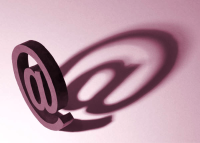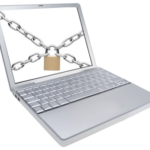Internet has become a great and very powerful tool in our modern society. It can be used for fun- games or social networks, education, but also shopping, getting services and working… Some statistics say that 40% of the world population has access to the Internet. That is over 3 billion users.* However, great amount of people are still hesitant and not comfortable with the virtual world. And it doesn’t help when you hear in the news how big companies get hacked despite their great security measures. So is it safe to use the Internet or shop online? Well, it all depends how it is being used. So how to browse internet safely? Let’s go over few things that can be done to minimize any risk.
1. Use Secured Wi-Fi Network
This is probably the most important security measure you can take, especially if using public Wi-Fi. When you connect to wireless hotspots, information you pull up on the website may be visible to others. It may be good to avoid using personal or financial information like your online banking or other sensitive data when connected to Public Wi-Fi. If you have to, send information only to websites that are fully encrypted. Encrypted sites have https in the address bar- the “s” is what determines if the site is encrypted. When you are done- make sure you log out of the account you were using.
What about your personal Wi-Fi in your home? Always make sure that your Wi-Fi network is password protected. We will talk more about secured passwords in the next points.
2. Never download anything from unknown sites
There are many websites out there that offer free stuff you can download- like wallpapers, pictures, music, games, etc. If you don’t know the site or it looks suspicious- don’t download anything. You can always check the reviews about the site if you feel you absolutely want to download something. Just be alert- many hackers can easily get your personal information or you can get a virus or other computer bug. If it looks to good to be true- it probably is. So Free doesn’t always come free.
Also it is good to have a good antivirus program that will alert you if there is something wrong or even block malicious attempts. Although you may have to pay for those programs- it is a lot cheaper then repair costs of hacked computer or even worse- stolen identity.
3. Don’t open e-mails you don’t recognize
 Scam e-mails are common practice in stealing information or even your money. Have you ever received e-mail supposedly from a friend or family member asking you for money and that they will tell you later why? I know I have many times. It may be good idea to call your friend and double check before you send any money. Also be careful with those e-mails that offer you free stuff or that say that you won something. Always be alert and look for anything that may be suspicious. Does the e-mail contain a link that you are supposed to click? Know that what a link says and what it reality could be two different things. Let’s say you got e-mail from your bank saying that your online banking was compromised and that if you don’t verify your information your account will be frozen. The problem is- banks don’t send e-mails with links asking that you enter your password or personal information. So things like that you just have to be very careful with. If your gut is telling you there is something wrong and you see red flags- it may be good to verify the information before you open the e-mail or click on any links.
Scam e-mails are common practice in stealing information or even your money. Have you ever received e-mail supposedly from a friend or family member asking you for money and that they will tell you later why? I know I have many times. It may be good idea to call your friend and double check before you send any money. Also be careful with those e-mails that offer you free stuff or that say that you won something. Always be alert and look for anything that may be suspicious. Does the e-mail contain a link that you are supposed to click? Know that what a link says and what it reality could be two different things. Let’s say you got e-mail from your bank saying that your online banking was compromised and that if you don’t verify your information your account will be frozen. The problem is- banks don’t send e-mails with links asking that you enter your password or personal information. So things like that you just have to be very careful with. If your gut is telling you there is something wrong and you see red flags- it may be good to verify the information before you open the e-mail or click on any links.
4. Update your passwords frequently and make them difficult
Be creative! Don’t use stuff like your name and date of birth or your dog’s name. Hackers can easily figure those things out. So make your passwords long, use lower and upper case with some letters, numbers and symbols. Also update your passwords frequently- at least once a quarter. Some websites will make you change those passwords more often.
5. Log out of your accounts and your are done

Although it may seem not that important, it is good to take all security measures seriously. Even though you turn off your computer or close your laptop, your online account can still be accessed by unwanted visitors. That is especially important when you are using public computers or hotpots. So you go to the library and you log in to your e-mail account. You are done so you close the browser and you are done… Well, not quite! The next person after you opens the browser and guess what- they most likely have access to your e-mail account. So it is a quick and easy step, but always log out of your accounts.
6. Monitor your kids
If you have kids, it is very important to make sure they know not to trust anybody online. Don’t let them post any personal information, like their name, address, or what school they go to. Children tend to trust others too much and they may be very vulnerable online.
Those are just a few basic tips on how to browse internet safely. Browsing websites can be fun and beneficial with those safety precautions. If you have any other tips that you found beneficial- please share with us.

